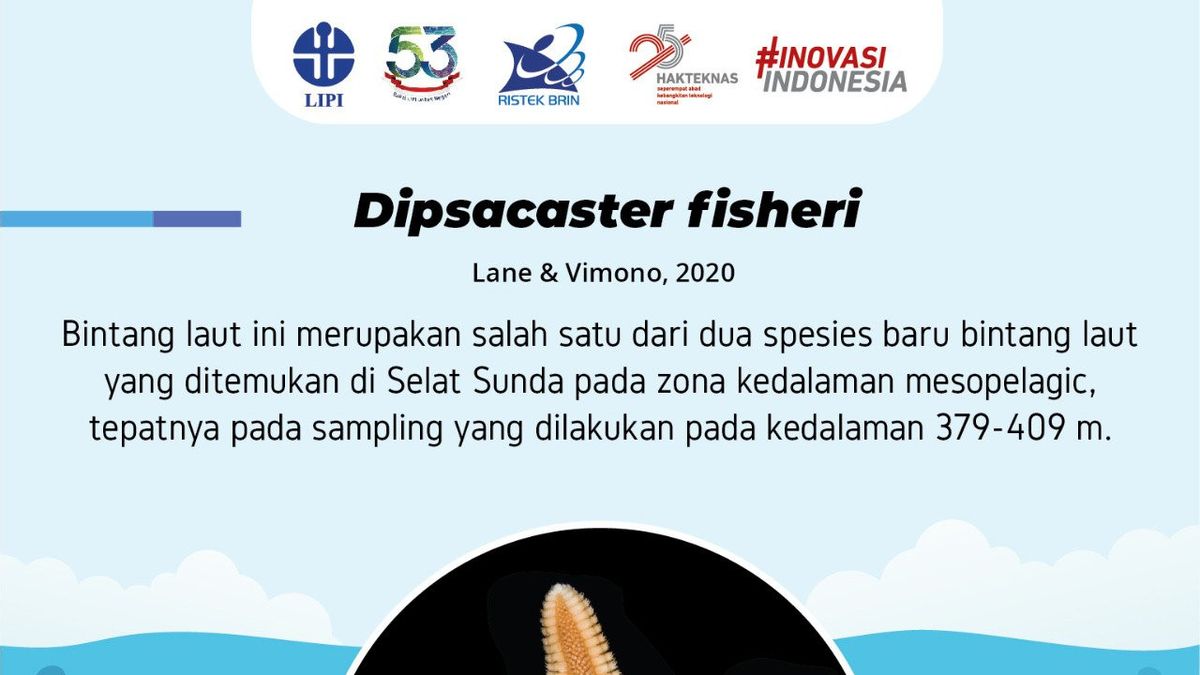JAKARTA - During the 2018 South Java Deep Sea Biodiversity Expedition (SJADES), LIPI has succeeded in finding a number of new marine biota. At least five new species have been discovered.
In an expedition conducted by the Indonesian Institute of Sciences (LIPI) Oceanographic Research Center with the Lee Kong Chian Natural History Museum of the National University of Singapore (NUS). Where the researchers identified the sea star species Dipsacaster fisheri and Pteraster sjadenensis.
"Two new species of starfish, two new species of fish, and one new species of crab in the waters of the Sunda Strait," wrote LIPI in its caption, Friday, September 18.
In addition, researchers identified Platygobiopsis hadiatyae fish species, Chelidoperca flavolineata fish, and Typhlocarcinops hadrotes crabs. These marine biota are found at depths of 800 meters to 2,100 meters.
The Head of LIPI, Laksana Tri Handoko, said that the 14-day expedition which started on March 23, 2013 was the first expedition to be carried out in the deep sea in southern Java, Indonesia. During the voyage, LIPI and NUS scientists managed to collect more than 12 thousand marine life, including fish, sponges, starfish, jellyfish, and crabs.
"This new discovery proves that Indonesia's seas store such diverse biodiversity, so let's always protect our seas," wrote LIPI.
The English, Chinese, Japanese, Arabic, and French versions are automatically generated by the AI. So there may still be inaccuracies in translating, please always see Indonesian as our main language. (system supported by DigitalSiber.id)













